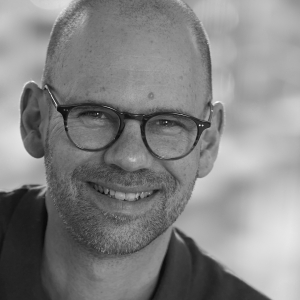Sigurd Braun
Justus-Liebig-University (JLU) Giessen
Institute for Genetics
Cell2Cell Coordinator
Supervisor ESR 9 & 13
Sigurd.Braun@gen.bio.uni-giessen.de
Research Interests
Eukaryotic genomes are organized into distinct chromatin domains that are critical for gene expression, genome integrity and cellular identity. Our group seeks to understand the regulation of transcriptionally repressed heterochromatin by dissecting the functional networks and molecular mechanisms that control its spatial organization, and by determining the dynamics and regulatory pathways in response to environmental changes. For this, our lab employs genome-wide screens, functional genomics, live-cell imaging, molecular biology and biochemistry. As a model, we use the powerful fission yeast (Schizosaccharomyces pombe), which harbors many of the conserved hallmarks of heterochromatin that are also present in P. falciparum and other pathogens. This makes this unicellular eukaryote an ideal genetic model system for studying mechanistic and systems-relevant questions in heterochromatin silencing.
We recently discovered that heterochromatin localization and silencing are controlled through a conserved nuclear membrane protein. Our unpublished data further demonstrate that the gene repression function of this nuclear membrane protein is altered upon environmental changes. This raises exciting questions about how stress signals, peripheral chromatin localization and gene expression are functionally linked. Besides, we seek to understand how boundaries between active and inactive heterochromatin change to accommodate gene expression programs under different conditions.
Keywords & Model Systems
Heterochromatin, gene repression, chromatin boundaries, nuclear architecture, subtelomeres
Schizosaccharomyces pombe (fission yeast)
Scientific CV
| Year | Function | Institution |
|---|---|---|
| since 2012 | Independent group leader | Ludwig Maximilian University Munich
Biomedical Center, Dept. Physiological Chemistry |
| 2005-2011 | Postdoctoral researcher | University of California San Francisco (UCSF)
Dept. Biochemistry & Biophysics |
| 2000-2005 | PhD in Biology | Max Planck Institute of Biochemistry, Martinsried
Advisor: Prof. Stefan Jentsch |
| 1992-1999 | Undergraduate studies in Biology (Diploma) | Albert Ludwig University Freiburg |
This project has received funding from the European Union’s Horizon 2020 Research and Innovation programme under the Marie Skłodowska-Curie grant number 860675.


